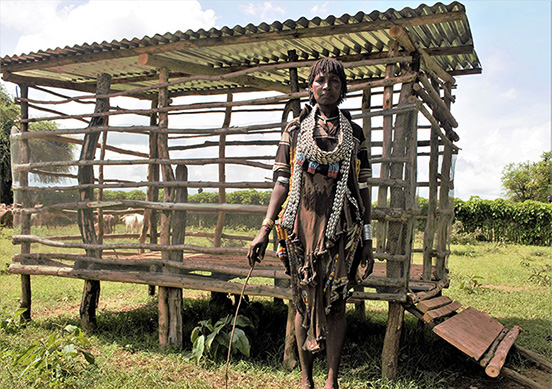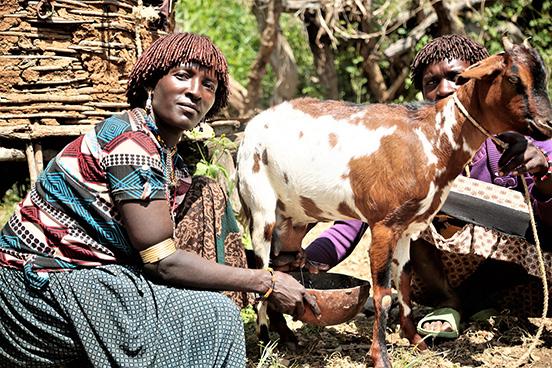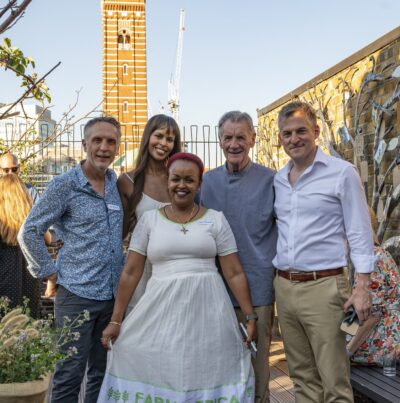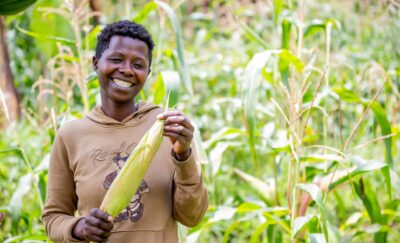News
6 March 2020
International Women’s Day: Empowering Female Farmers

International Women’s Day is here, giving us an opportunity to reflect on how our projects are empowering women and girls in eastern Africa.

In sub-Saharan Africa, life for rural women isn’t easy. The female share of the agriculture labour force is the highest in the world. This is often combined with domestic duties such as making food for their families, collecting water and firewood.
Despite this, women do not have the same opportunities as men, having a lower social and economic status.
This is further entrenched by changes in climate, which make it difficult for women to overcome poverty. UN figures indicate that 80% of people displaced by climate emergencies are women, who are bearing the brunt of environmental shocks.
Empowering women in the face of changing climates
Ethiopia’s South Omo Zone and Uganda’s Karamoja sub-region are home to thousands of pastoralists who migrate with their livestock in search of pasture. However, recurrent climate changes have brought disease, drought and degraded grasslands. This has cut the size of herds of livestock, exacerbating already high levels of poverty and malnutrition.
Farm Africa’s Livestock for Livelihoods programme, funded by UK aid from the UK government, supports pastoralist women in South Omo and Karamoja to set up sustainable, small goat rearing enterprises to generate income and provide them and their families with a more nutritious diet.

Wartie Korayo, from the BenaTseMay Woreda of South Omo, is one of the incredible women benefiting from the project. She works hard to provide for her family, juggling farm work, her role as the primary care-giver to her eight children, and taking care of the family’s livestock.
The harsh climate in South Omo has meant that her yield and livestock have suffered, decreasing her income significantly. To help Wartie address these challenges and increase her income, Farm Africa provided her with three goats and training in goat husbandry and livestock business. She now has a herd of six.
“I am able to get a relatively sufficient amount of milk for my children. I am considering fattening and trading male goats to make money,” Wartie said.
An entrepreneur, she also spotted an unmet demand in her local community and has used the income generated from her herd to start a business making and selling a local drink. This has increased her income further and has allowed her family to prosper.
“I am excited this project helped me to make my long-term business idea practical… The money I am earning is easing my burden. I can feed my family and give my children an education.”
%module-gallery-57%

We are carrying out this work in partnership with the Africa Innovations Institute, an agriculture and food systems research institute, and the Mothers and Children Multisectoral Development Organization, an NGO that works to improve the lives of disadvantaged mothers and children. This project is funded with UK aid from the UK government.




